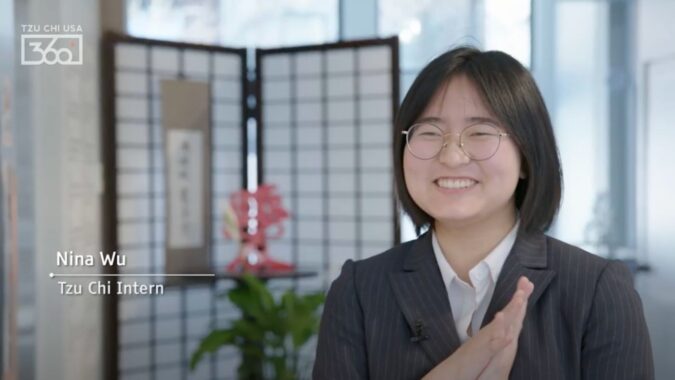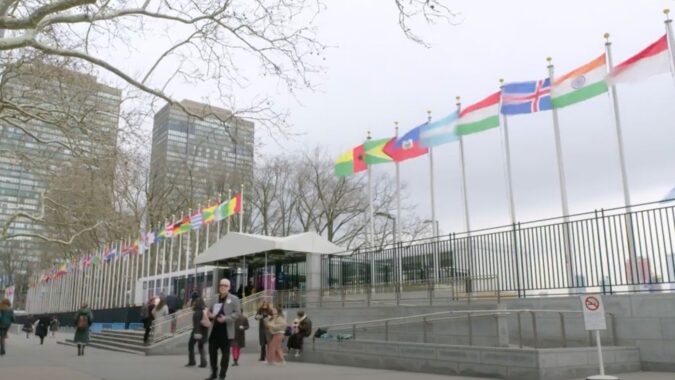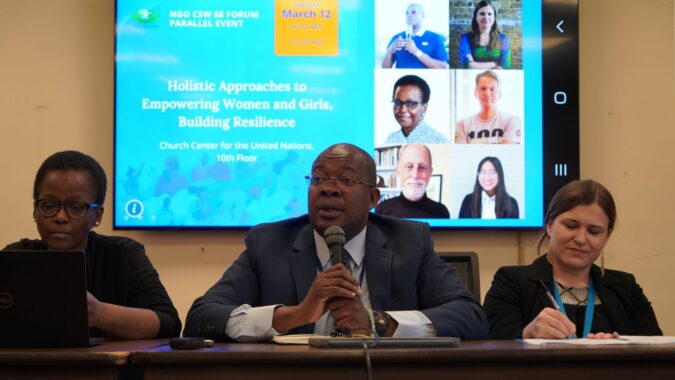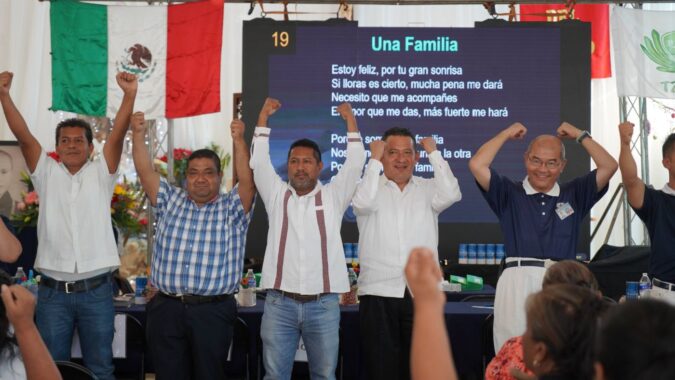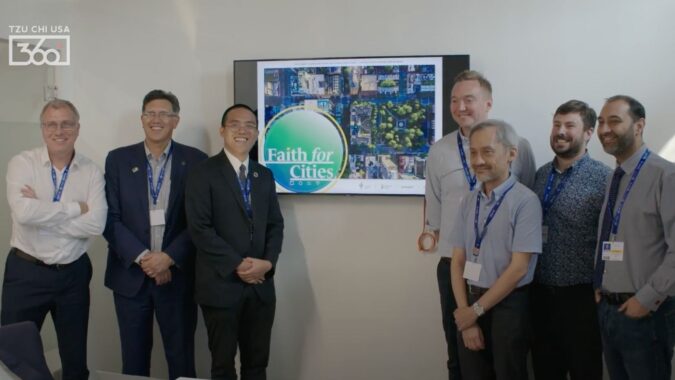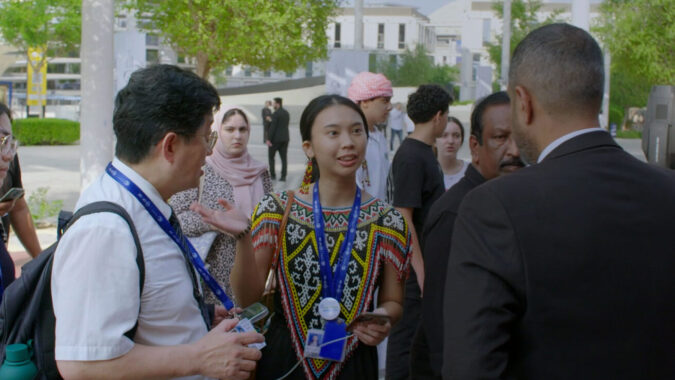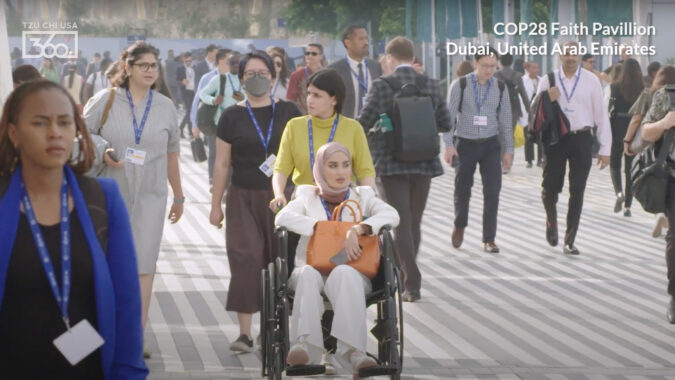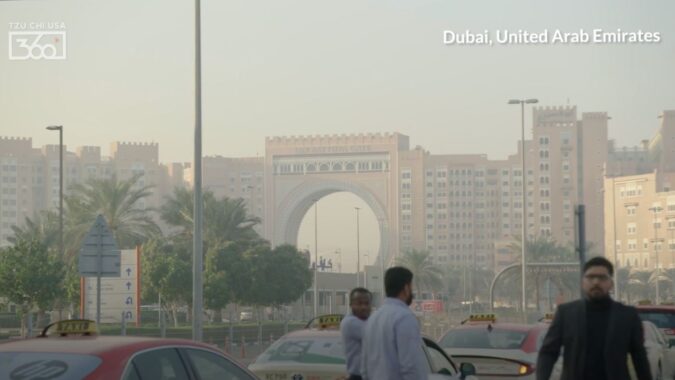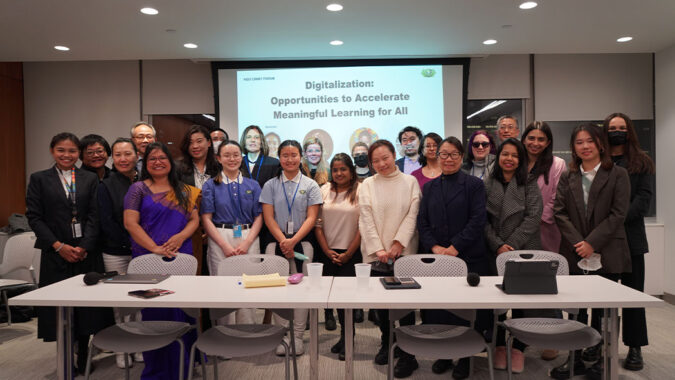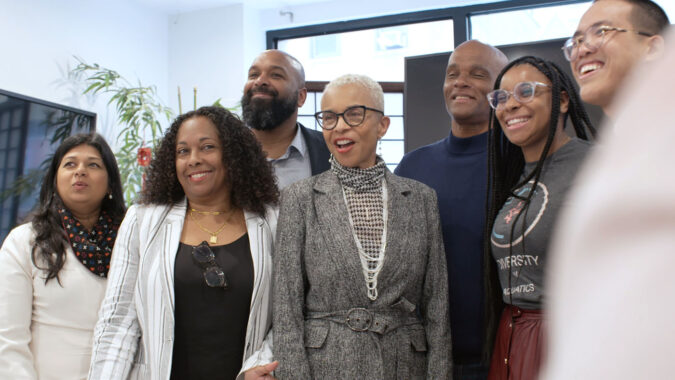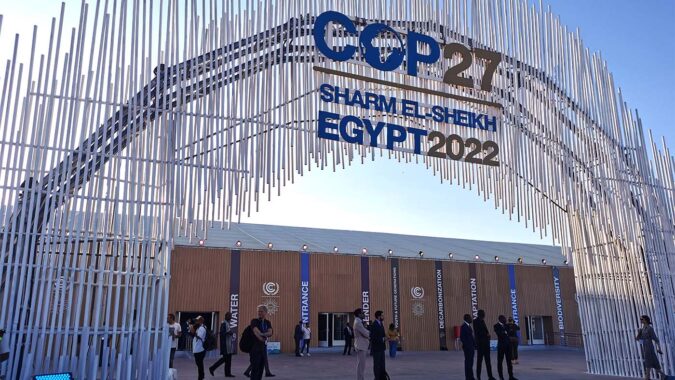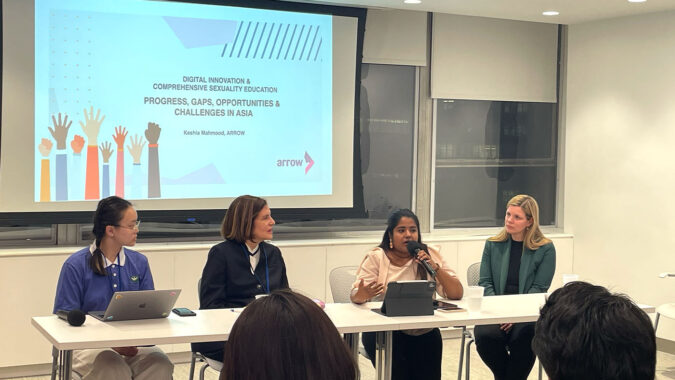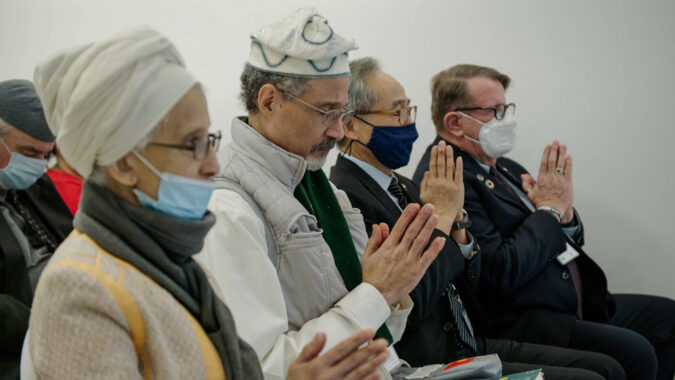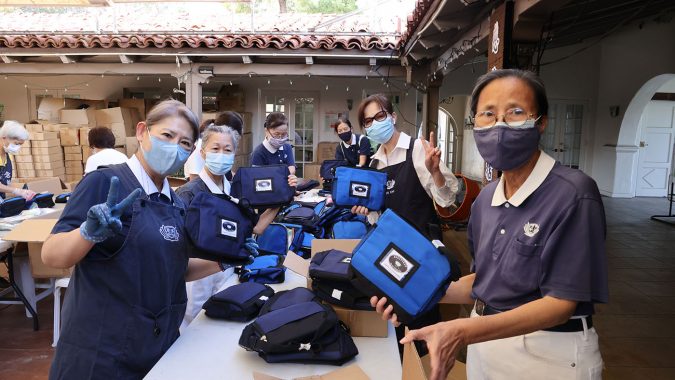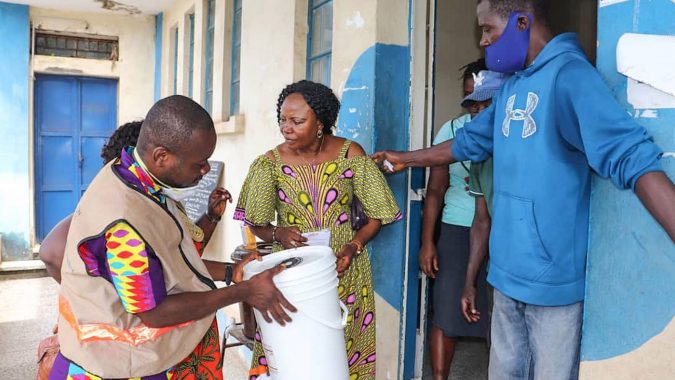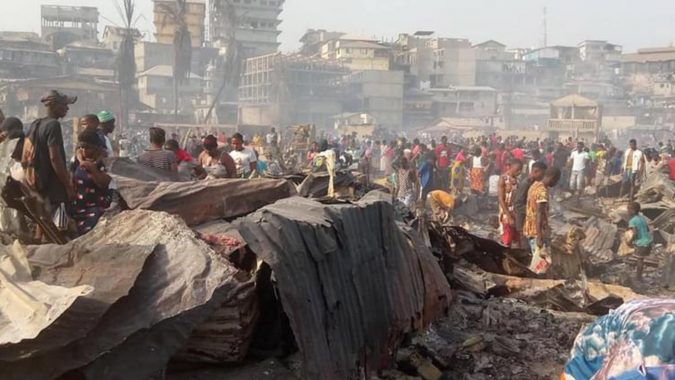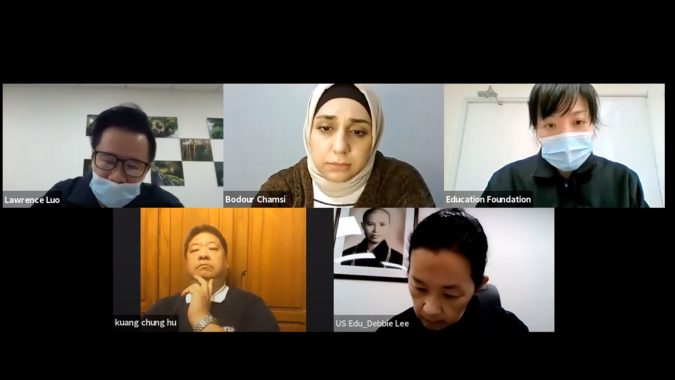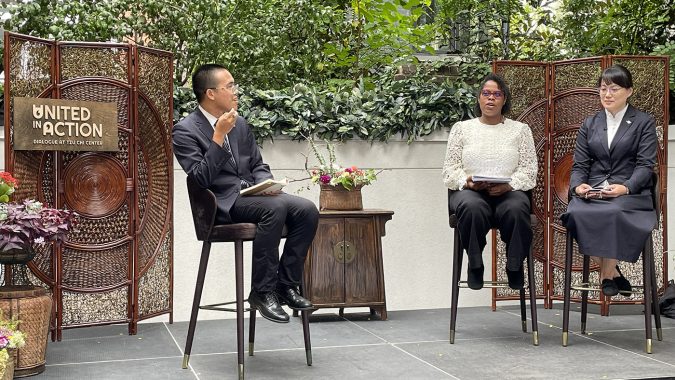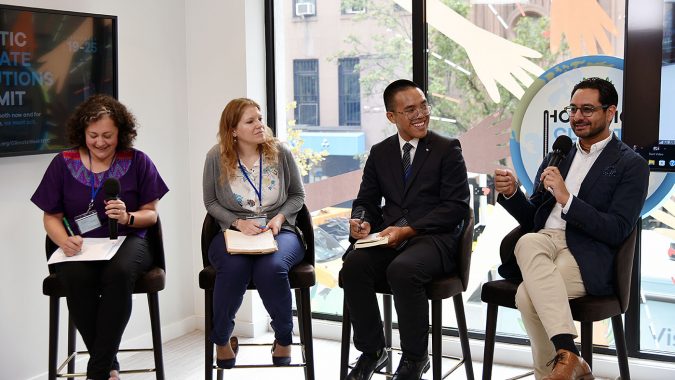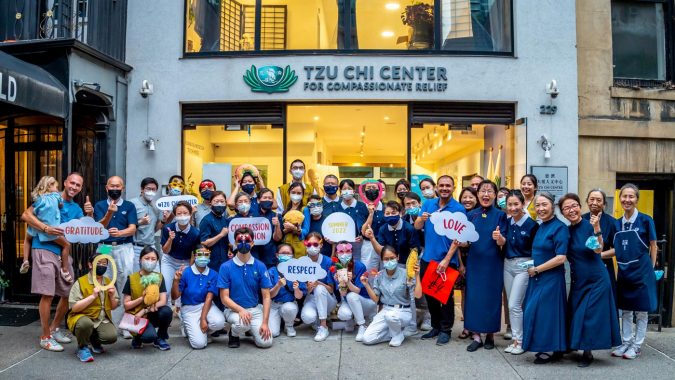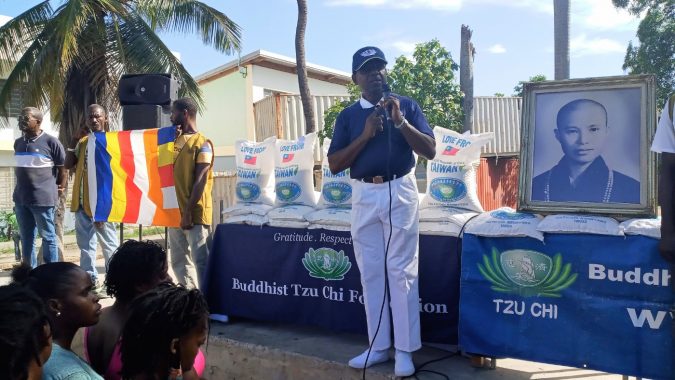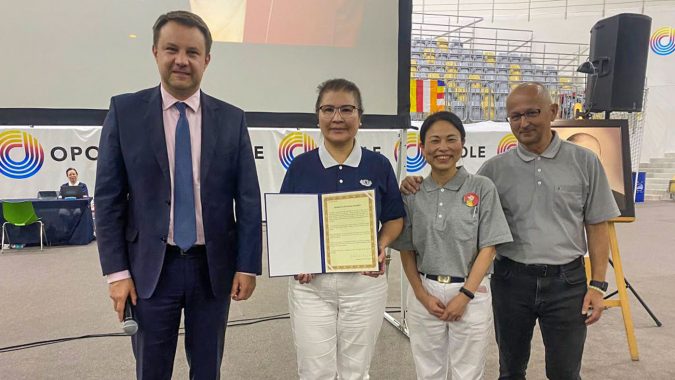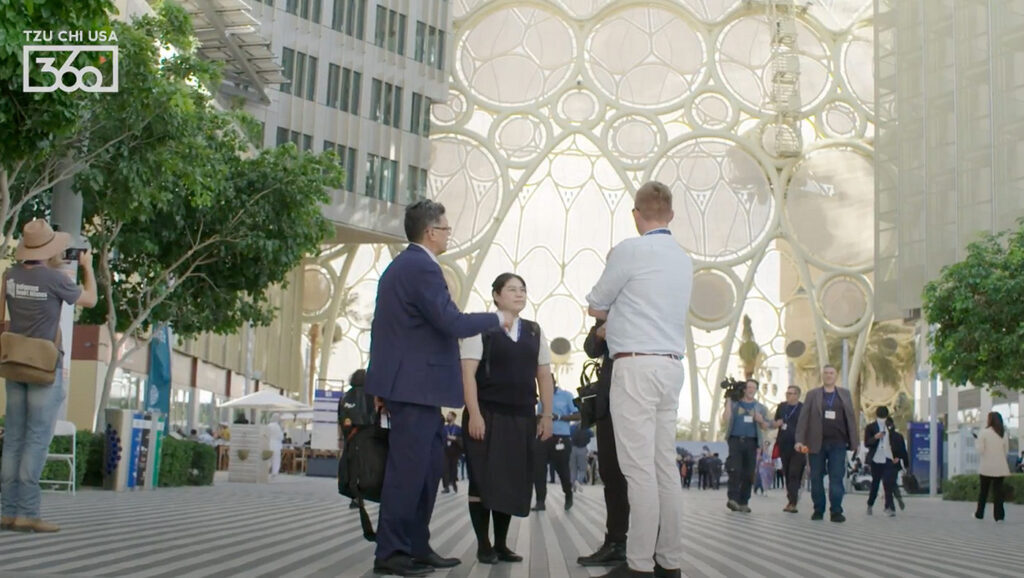
Written by Anna Sipek
The Tzu Chi team has arrived at COP, the largest annual international climate meeting, in the United Arab Emirates to once again meet with representatives around the world and collaborate on combating the climate crisis.
“We’re here at COP for the next two weeks, and really we’re here to advocate, showcase, share, reflect and build relationships.” said Steve Chiu, one of Tzu Chi’s United Nations Representatives. “We need to advocate for the values and framework that allows us to build a more equitable and transformative world together, creating this community of love and care for the planet, people and all beings in it.”
Entering the Faith Pavilion
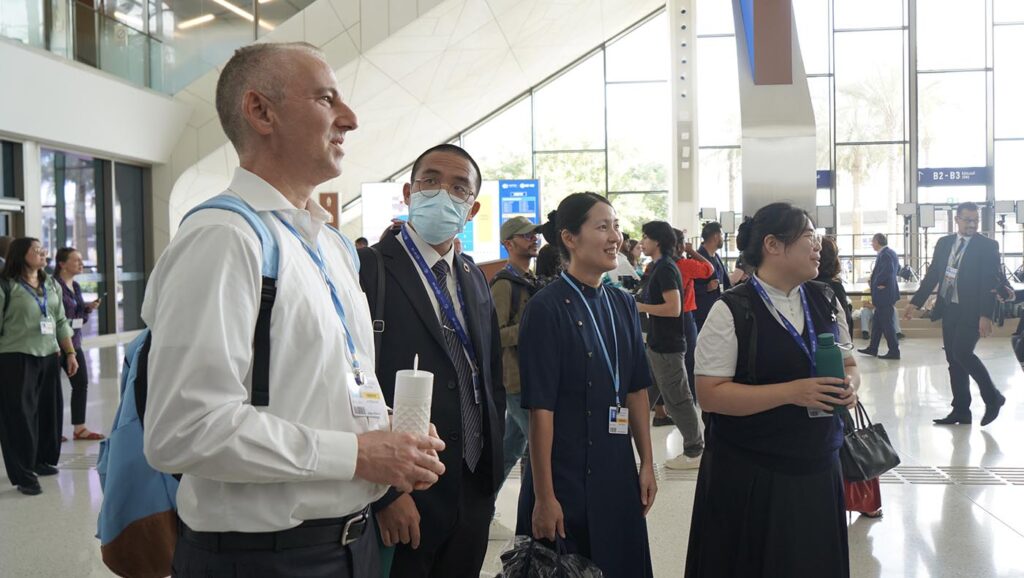
While religious organizations have always had their place at COP, this was the first time COP ever had a space dedicated to spiritualists: the Faith Pavilion. Created by the Muslim Council of Elders in collaboration with COP28 UAE the Ministry of Tolerance and Coexistence, and UN Environment Programme (UNEP), the Pavilion is meant to serve as a breeding ground for multifaith collaboration in response to the climate crisis.
As, historically, some of the most influential moral and ethical authorities, religious institutions have the untapped potential to act as environmental revolutionaries, wielding their community-based power to advance environmental action on all fronts.
Mohamed Bahr Head of Strategic Planning at the Muslim Council of Elders expressed his hopes for this important incubator: “This place will bring the voice of religious leaders and will bring the voice of all the faith-based communities for the first time hopefully we can influence the decision making.”
Hosting the Talanoa Dialogue
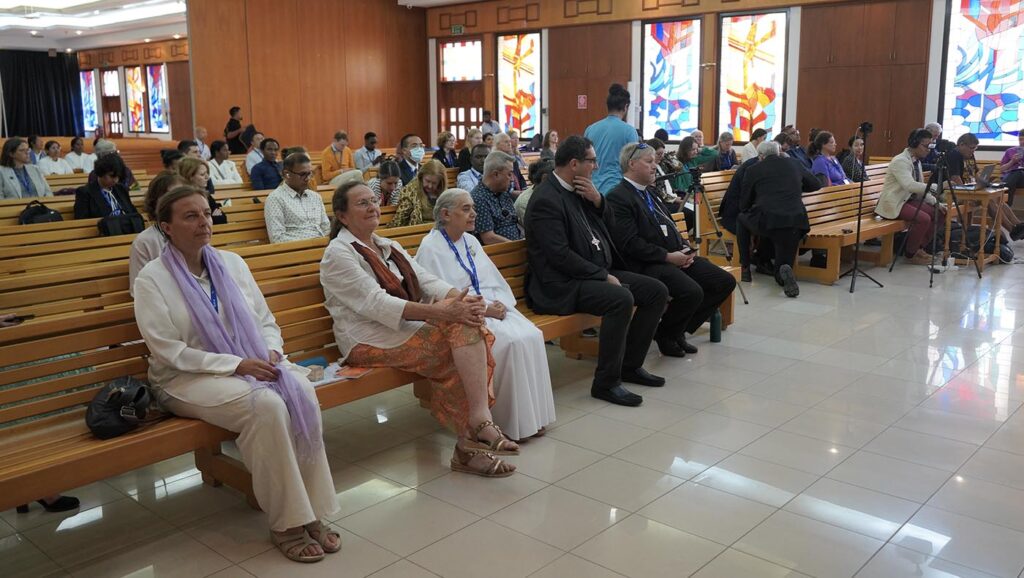
Tzu Chi’s first official COP28 event, organized in collaboration with the Interfaith Liaison Committee, “The Informal Interfaith Gathering in the Spirit of Talanoa Dialogue” at Christ Church Jebel Ali gave space for activists to situate themselves as we begin COP28 and provide guidance in developing a shared vision and action plan for a sustainable, green future.
Talanoa, a word originating in Fiji, Tonga, and Samoa, is used to describe sharing stories and direct personal experience as a crucial problem solving tool. It’s this model that served to inform both the panel discussion and workshops during the gathering.
Featuring World Council of Churches General Secretary Reverend Dr. Jerry Pillay, Harjeet Singh of the Climate Action Network, Sister Jayanti of the Brahma Kumaris, Executive Director of the Native American Comprehensive Plan Rev. Chebon Kernell, and Carine Wendland from Lutheran World Federation, the panelists emphasized the importance of hearing various perspectives on environmental action.
“One of the greatest joys for me is the collaboration of religious people across the different religious groupings.” said Reverend Pillay, “It’s created a new energy to be able to say we’re all human beings.”
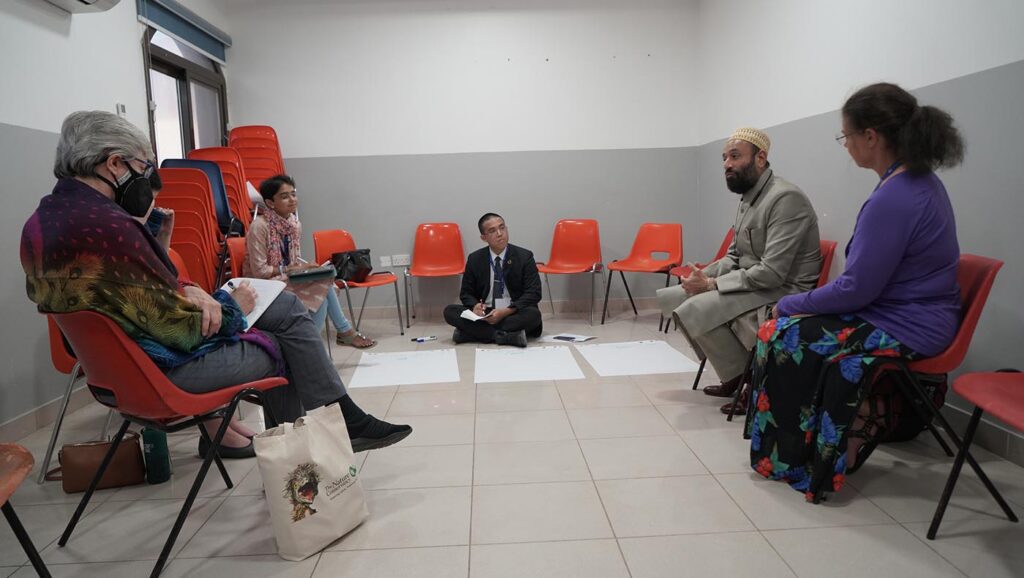
From there, religious and spiritual leaders from all walks of life broke out into discussion groups on all things climate related. From Intergenerational Justice to Gender Inclusivity, Loss and Damages to Climate Finance, they gathered to answer the following questions: where are we? Where do we want to go? How do we get there?
The Interfaith Gathering in the Spirit of Talanoa Dialogue also offered the opportunity to create an Interfaith Talanoa Call from the voices present expressing concerns, demands and hopes to be delivered to the UNFCCC Executive Secretariat.
“The biggest goal is to spread the light, create the hope. This is my good wish and my hope for this COP28,” said dialogue participant Priyanka Patil of Radio Madhuban.





